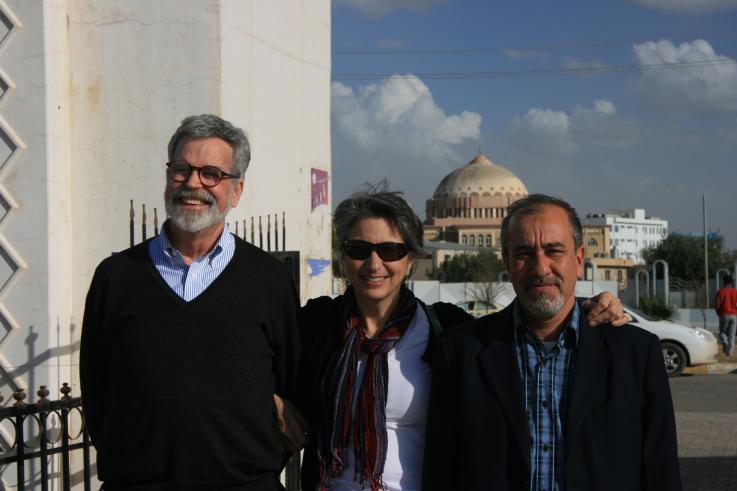
Dr. Riyadh Lafta to Speak on October 27
By Bobbi Nodell
Dr. Riyadh Lafta, a professor of medicine at Mustansiriya University in Baghdad, Iraq, will be giving a lecture on the state of public health in Iraq at 7 p.m., Thursday, Oct. 27 at the University of Washington.
Lafta, an affiliate professor in the UW Department of Global Health, has been collaborating with researchers at UW, Johns Hopkins University and Simon Fraser University in British Columbia on a number of studies involving the effects of war on public health. He first started working with UW faculty in 2005 on a study looking at trends in childhood leukemia in Basrah, Iraq, from 1993-2007. The paper was published in the American Journal of Public Health in 2010.
Amy Hagopian, UW associate professor of global health, met Lafta when leading a project to establish a sister university relationship in Iraq after the U.S. invasion in 2003. She described his visit as historic.
“I have worked with many wonderful colleagues over the years, but have never met anyone so dedicated to his work as Riyadh Lafta,” she said. “Imagine going to work every day, day after day, to ensure your students succeed and important research is conducted, despite threats and car bombs and kidnappings all around. Many of his colleagues have fled the country, but he carries on with this important work. I am so pleased to bring him to Seattle.”
Lafta has been involved in several well-publicized studies estimating Iraqi mortality after the U.S. led invasion. The first studies published in The Lancet in 2004 and 2006 based on household surveys estimated mortality figures higher than several other reports.
He was also co-author of a 2013 study published in PLOS Medicine that concluded at least 461,000 “excess” Iraqi deaths occurred in Iraq between 2003 and 2011. Those were defined as fatalities that would not have occurred in the absence of an invasion and occupation. For the study, a team of Iraqi physicians visited 2,000 randomly selected homes and asked residents to recount all family deaths that had occurred in the period beginning two years before the invasion, through 2011. The researchers then extrapolated a crude death rate and applied that to Iraqi’s estimated population of more than 32 million.
Lafta is in the United States to address the American Public Health Association meeting next month in Denver on a scientific session on war and health.
Lafta received his medical degree from the College of Medicine/ Baghdad University 1984 and completed his PhD from the Iraqi Committee for Medical Specialization.
He has worked in Iraq hospitals (1984-1997), with the Iraq Ministry of Health (1995-97), and as a supervisor for the National Immunization Campaigns in rural areas (UNICEF, 1996-97). He’s completed several projects with the World Health Organization. His research is focused on a range of population health issues, including conflict epidemiology, malaria screening, pregnancy outcomes, vaccines, diabetes, obesity and injury.
Lafta’s lecture, “Life in Baghdad today: Thirteen years after the U.S. invasion, what is the state of public health?” is from 7-8:30 p.m. Thursday, Oct. 27, 2016, at the William H. Foege Genome Sciences Auditorium (S-060). He will be introduced by State Sen. Pramila Jayapal (D-Seattle).